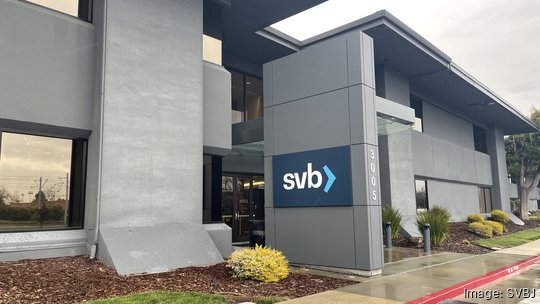
Silicon Valley Bank, which has a host a startup and technology clients around the nation, was shut down by federal regulators on Friday morning.
The bank's failure — the largest in the U.S. since the 2008 financial crisis — has spawned shockwaves across the U.S. startup scene and sent founders scrambling to secure funds for payroll and other expenses.
Even before federal regulators assumed control of Silicon Valley Bank, several well-known venture capital firms on Thursday began advising portfolio companies to pull funds out of SVB, including Peter Thiel's Founders Fund and Coatue. The panic was sparked by SVB's announcement that it planned to raise $2.25 billion after losing $1.8 billion following the sale of securities.
SVB searched for a buyer to firm up its balance sheet, but the California Department of Financial Protection and Innovation stepped in and seized the bank on Friday morning.
What's next for SVB clients?
For founders who didn't pull their funds from SVB, it's uncertain exactly when they'll have access to their cash, but the FDIC has provided some answers.
Companies with accounts less than $250,000 are insured by the FDIC and firms will have full access to those funds by Monday, the FDIC said. For larger accounts, which includes many of the VC-backed startups that rely on SVB, the next steps are less clear.
The FDIC said it will "pay uninsured depositors an advance dividend within the next week. Uninsured depositors will receive a receivership certificate for the remaining amount of their uninsured fund," according to a press release. The FDIC advised customers with accounts higher than $250,000 to contact its toll-free phone line.
Silicon Valley Bank and the startup scene
Some companies discovered that reducing exposure to SVB was not an option. David Gardner, CEO of North Carolina VC firm Cofounders Capital, told Triangle Inno that one portfolio company "had covenants saying that they can’t move their money out or they are in default on their loan.”
In a letter to CEOs sent Friday morning, Gardner said the “conservative advice” was to leave just the FDIC insured limit in SVB, according to Triangle Inno.
“The less conservative guidance would be to move at least half of your deposits to another bank in case access to your accounts at SVB are restricted for a while,” Gardner wrote.
Denis Sheahan, chief executive of Cambridge Trust Co., said Friday afternoon that his bank was getting a lot of calls from SVB customers, according to the Boston Business Journal.
"We want to be there to help them," he said. "This is not a happy day for anyone. This is a very sad day."
SVB, founded in 1983, had become a favorite banking partner for VCs and startups. It developed a reputation as a bank that "got" startups and understood their needs. Harper Reed, a serial founder in Chicago, took to Twitter to explain SVB's impact to the startup community.
Now, companies with large SVB balances are in wait-and-see mode as it's unclear when they'll have full account access. The most immediate issue for many startups: having enough cash to cover the upcoming pay period for its employees.